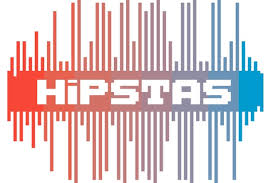Events of Interest
Tanya Clement– 3/5/14, 6:30-8:30 : “HiPSTAS, What?: Information Retrieval, Machine Learning, and Visualizations with Sound”
On 26, Feb 2014 | In Events of Interest | By Amanda Licastro
 Even digitized, unprocessed sound collections, which hold important cultural artifacts for the humanities such as poetry readings, story telling, speeches, oral histories, and other performances of the spoken word remain largely inaccessible.In order to increase access to recordings of significance to the humanities, Tanya Clement at the University of Texas School of Information in collaboration with David Tcheng and Loretta Auvil at the Illinois Informatics Institute at the University of Illinois, Urbana Champaign have developed the HiPSTAS (High Performance Sound Technologies for Access and Scholarship), which is currently being funded by an NEH Institute for Advanced Topics in the Digital Humanities grant and an NEH Preservation and Access Grant to develop and evaluate a computational system for archivists, librarians, and humanists for discovering and analyzing sound collections. The main premise behind HiPSTAS is that if we don’t use sound collections, we will not preserve. To this end, HiPSTAS has brought together humanists interested in sound scholarship, stewards of sound collections, and computer scientists and technologists versed in computational analytics and visualizations of sound to develop more productive tools for advancing scholarship in spoken text audio. This talk will introduce the project, the participants, and the processes and share early results.
Even digitized, unprocessed sound collections, which hold important cultural artifacts for the humanities such as poetry readings, story telling, speeches, oral histories, and other performances of the spoken word remain largely inaccessible.In order to increase access to recordings of significance to the humanities, Tanya Clement at the University of Texas School of Information in collaboration with David Tcheng and Loretta Auvil at the Illinois Informatics Institute at the University of Illinois, Urbana Champaign have developed the HiPSTAS (High Performance Sound Technologies for Access and Scholarship), which is currently being funded by an NEH Institute for Advanced Topics in the Digital Humanities grant and an NEH Preservation and Access Grant to develop and evaluate a computational system for archivists, librarians, and humanists for discovering and analyzing sound collections. The main premise behind HiPSTAS is that if we don’t use sound collections, we will not preserve. To this end, HiPSTAS has brought together humanists interested in sound scholarship, stewards of sound collections, and computer scientists and technologists versed in computational analytics and visualizations of sound to develop more productive tools for advancing scholarship in spoken text audio. This talk will introduce the project, the participants, and the processes and share early results.
 Tanya Clement is an Assistant Professor in the School of Information at the University of Texas at Austin. She has a PhD in English Literature and Language and an MFA in fiction. Her primary area of research centers on scholarly information infrastructure as it impacts academic research, research libraries, and the creation of research tools and resources in the digital humanities. She has published in American Literary History, Digital Humanities Quarterly, Digital Studies / Le champ numérique, Jacket2, the Journal of the Text Encoding Initiative, Library Quarterly, Literary and Linguistic Computing, and Texas Studies in Literature and Language. Some of her digital projects include High Performance Sound Technologies for Access and Scholarship (HiPSTAS) (http://blogs.ischool.utexas.edu/hipstas/), which has received funding from the National Endowment for the Humanities, and ProseVis (http://tclement.ischool.utexas.edu/ProseVis/), which was awarded “Best Infovis” in the 2012 Digital Humanities Awards as part of the NEH-funded “A Thousand Words: Advanced Visualization for the Humanities” project at the Texas Advanced Computing Center (TACC).
Tanya Clement is an Assistant Professor in the School of Information at the University of Texas at Austin. She has a PhD in English Literature and Language and an MFA in fiction. Her primary area of research centers on scholarly information infrastructure as it impacts academic research, research libraries, and the creation of research tools and resources in the digital humanities. She has published in American Literary History, Digital Humanities Quarterly, Digital Studies / Le champ numérique, Jacket2, the Journal of the Text Encoding Initiative, Library Quarterly, Literary and Linguistic Computing, and Texas Studies in Literature and Language. Some of her digital projects include High Performance Sound Technologies for Access and Scholarship (HiPSTAS) (http://blogs.ischool.utexas.edu/hipstas/), which has received funding from the National Endowment for the Humanities, and ProseVis (http://tclement.ischool.utexas.edu/ProseVis/), which was awarded “Best Infovis” in the 2012 Digital Humanities Awards as part of the NEH-funded “A Thousand Words: Advanced Visualization for the Humanities” project at the Texas Advanced Computing Center (TACC).

 Welcome to the blog of the CUNY DHI, an effort to build momentum and community around Digital Humanities practitioners at CUNY. We hope you'll join us at our upcoming events and that you'll follow this blog to hear about the latest news in the field.
Welcome to the blog of the CUNY DHI, an effort to build momentum and community around Digital Humanities practitioners at CUNY. We hope you'll join us at our upcoming events and that you'll follow this blog to hear about the latest news in the field.



Comments